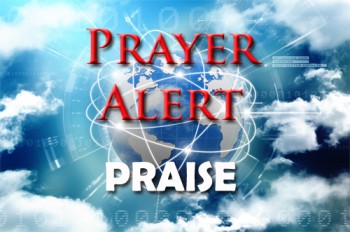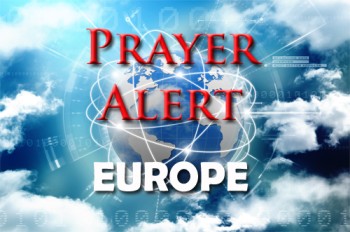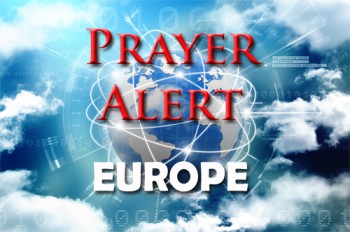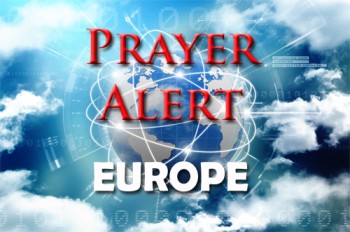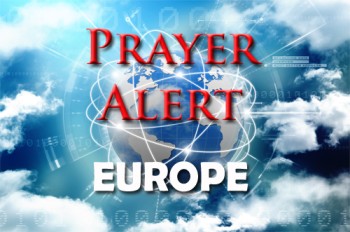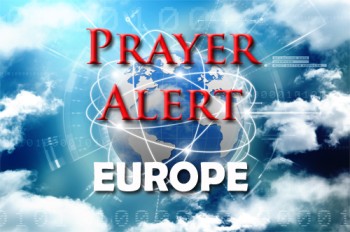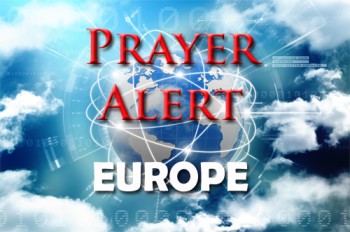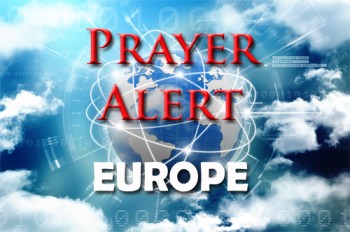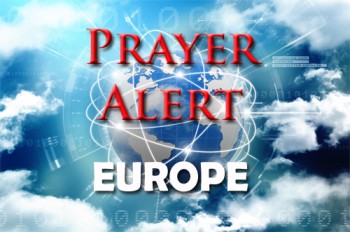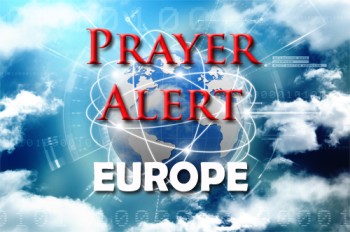Displaying items by tag: Europe
France: boom in baptisms and Bible sales
An unexpected spiritual revival is unfolding in France, where more than 10,000 adults are set to be baptised in 2025 - a 45% increase in one year. This surge, accompanied by record youth participation in pilgrimages and a marked rise in Bible sales, is reshaping the French Catholic landscape. Journalist Antoine Pasquier has investigated why young people are turning to faith in a secular society still recovering from scandal and decline. His research reveals that Scripture, not social media, plays the central role in conversions, as many seekers first encounter Christ through personal reading of the Bible. Influenced by the visible faith of Muslim peers, many young converts desire to express their beliefs openly and live with greater spiritual depth. Pasquier calls for the French Church to become a ‘catechumenal Church’ - one renewed through evangelisation, personal conversion, and openness to the Holy Spirit.
France: new PM to be named within 48 hours?
Emmanuel Macron is expected to appoint a new prime minister within 48 hours, following the abrupt resignation of Sébastien Lecornu’s government just 14 hours after being named. Lecornu, asked to outline a path forward, concluded that most lawmakers oppose snap elections and that a narrow parliamentary plurality could support a 2026 budget aimed at reducing France’s deficit, projected at 5.4 percent of GDP. Macron now faces the challenge of naming a leader capable of governing without a parliamentary majority - the same obstacle that brought down Lecornu’s predecessors. Choosing a centre-left prime minister from the Socialist Party could help build a coalition but would probably reignite controversy over Macron’s contested pension reform, which raised the retirement age. With political divisions deepening, Macron has yet to comment publicly, while far-right leader Marine Le Pen and her party have said they would vote to topple any new prime minister named before new elections, intensifying France’s ongoing political instability. For an assessment of Macron’s options, see
Europe: EC proposes drastic cut in steel imports, doubles tariffs
The European Commission has proposed halving the volume of steel imports entering the EU duty-free - from 30.5 million to 18.3 million tonnes annually - and doubling tariffs on imports exceeding that quota to 50%. The move, announced by EC president Ursula van den Leyen, aims to protect the struggling European steel industry, which operates at just 67 percent capacity and faces heavy competition from cheap, subsidised steel, especially from China. Global steel overcapacity, now at 600 million tonnes, is projected to exceed 720 million next year, pressurising European producers and leading to the loss of 18,000 jobs across the bloc. The new measures, including a ‘melt and pour’ rule to trace steel origins, are designed to curb tariff circumvention and lift EU production to 80% capacity use. While the plan also affects US imports, Brussels hopes for cooperation with Washington to address global surpluses. The proposal now awaits approval from EU member states and the European Parliament.
France: implications of Sarkozy’s unexpected conviction for corruption
Former president Nicolas Sarkozy has been convicted of criminal conspiracy and sentenced to five years in prison, marking a historic and dramatic moment in French politics. The Paris court ruled that he engaged in an attempted ‘corruption pact’ with Muammar Gaddafi’s regime to secure millions in illegal funding for his 2007 presidential campaign, though it could not establish whether the money was actually transferred. The case underscores how corruption can erode citizens’ trust in leadership. Sarkozy, who maintains his innocence, also faces a €100,000 fine and will begin serving his sentence despite pending appeals, a rare judicial decision in France. The ruling has poured more fuel on France’s fractious politics; Marine le Pen, who was convicted of embezzlement in March, suggested the ruling was politically motivated, while others see it as proof that even powerful figures can be held accountable. Sarkozy, already convicted twice before, remains an influential figure, still consulted by current leaders navigating France’s volatile political landscape.
Czech Republic: former PM poised for comeback, faces difficult balancing act
Billionaire and former prime minister Andrej Babis is poised for a political comeback as his ANO party leads polls ahead of the October 3-4 elections. Having shifted from a liberal to a national-conservative position, Babis is promising voters financial relief and protection from external pressures such as immigration and climate policies. Yet his return to power would be fraught with complications. ANO is expected to fall short of a majority, forcing him to seek support from far-right or far-left allies who advocate leaving the EU and NATO – a stance at odds with his own pledge to remain. He also faces personal challenges, including a renewed fraud trial and a significant conflict of interest over his vast business empire, Agrofert, which receives significant EU subsidies. His alliances with figures like Hungary’s Viktor Orbán underscore his anti-Brussels stance, but navigating extremist demands while maintaining pro-Western ties may prove his toughest balancing act yet.
Moldova: president warns of Russian interference as elections near
Days before crucial parliamentary elections, Moldova’s president Maia Sandu has warned that Russian-backed plots are threatening her nation’s independence and European aspirations. Police have arrested 74 people accused of planning violent unrest, seizing weapons and explosives allegedly supplied through Russian training in Serbia. Sandu accused the Kremlin of pouring hundreds of millions of euros into Moldova to spread disinformation, buy votes, and intimidate pro-EU supporters, echoing past meddling during the 2022 EU-accession referendum which was narrowly approved by just 50.4%. Pro-Russian parties deny wrongdoing and claim Sandu is stifling opposition, while Moscow’s SVR intelligence agency countered with disinformation alleging European plans to falsify the vote and occupy Moldova. Sandu’s Party of Action and Solidarity faces stiff competition, especially in Russian-speaking regions like Gagauzia where many favour closer ties to Moscow. She is calling for high voter turnout, particularly from the diaspora, to safeguard the country’s sovereignty and keep its path toward EU membership.
Italy: two days of strikes in support of Palestine cause widespread disruption
Thousands of Italian workers and students staged a nationwide general strike and demonstrations on 21 September. Organised by grassroots unions and supported by Italy’s largest trade union, CGIL, the walkout disrupted public transport, trains, schools, and ports. Major cities such as Rome and Milan experienced severe transit delays, while sit-ins at Genoa and Livorno ports slowed the movement of goods. The action, which followed a similar strike the previous day, was called to protest about the humanitarian crisis in Gaza, Israel’s blockade of aid, and threats against the Global Sumud Flotilla mission. USB, a key union federation, criticised the government and the EU for refusing to impose sanctions on Israel and for maintaining economic ties despite ongoing violence. Rome authorities reported about 20,000 demonstrators at midday near Termini station, though organisers said there were up to 100,000. Meanwhile, Giorgia Meloni’s government faces rising domestic pressure over its stance on the Israel-Hamas war.
Russia and Belarus conduct military exercises as NATO feels the heat
Watched by US military officers and delegates from Turkey and Hungary, Russia and Belarus have launched large-scale military exercises across their territories and nearby seas, showcasing advanced weaponry and tactical nuclear capabilities near NATO’s eastern flank. The drills, involving roughly 6,800 troops as well as fighter jets and missiles, practised modern combat tactics like drone-assisted infantry assaults. Relations between Washington and Minsk seem to be improving; Belarus has recently released 52 political prisoners, prompting the Trump administration to ease some sanctions. Meanwhile, NATO allies remain uneasy after Russian drones repeatedly violated Polish and Romanian airspace. European leaders worry the exercises highlight Russia’s growing nuclear reach and evolving battlefield strategies, while Moscow insists it is open to dialogue but blames Western nations for obstructing progress toward resolving regional tensions.
France: Macron’s options after prime minister ousted
France faces a huge political crisis after lawmakers voted to oust prime minister François Bayrou’s minority government over his controversial austerity measures. His plan to cut €43.8 billion from the budget, including the elimination of public holidays, proved too bitter for lawmakers to swallow, leading to his removal by a wide margin. Emmanuel Macron must now name a fifth prime minister in less than two years, but his options are fraught. Any new premier will confront the same fractured parliament, where ideological divides between socialists and conservatives leave little space for compromise. A snap election would most likely lead to another hung parliament, while a technical caretaker government risks political paralysis. Though Macron’s resignation as president is highly improbable, his authority appears diminished. Financial markets are watching nervously as doubts grow over France’s ability to curb its soaring debt and deficits. Latest update: a new prime minister has been sworn in, but a grassroots group ‘Let’s block everything’ organised widespread protests, some violent, on 10 September. See
Poland: reactions to Russia’s drone attacks
Russia’s unprecedented drone strikes on Poland on 9 September are framed as both a test and a warning to Europe and NATO. Moscow, adept at ‘salami-slicing’ escalation, is probing allied resolve with incremental provocations - from bombings in Kyiv to GPS jamming: each crossing a new line while eliciting mostly rhetoric. Similar tactics enabled the 2014 seizure of Crimea, and hitting Polish territory is a larger slice meant to measure the alliance’s willingness to honour Article 5. A direct military response is deemed unlikely, yet inaction risks projecting weakness and inviting the next escalation. Sanctions talk will grow, but prior rounds neither deterred invasion nor reversed it; energy sanctions that might bite remain politically constrained. The strikes also serve as a warning against deeper Western involvement in Ukraine: Russia’s deniable, ambiguous tactics could complicate any future allied deployment after a ceasefire. The core question: can NATO deter without stumbling into a wider war?
